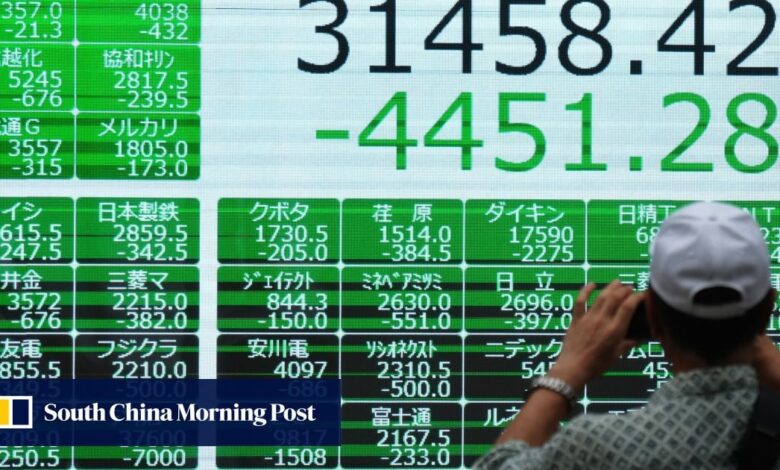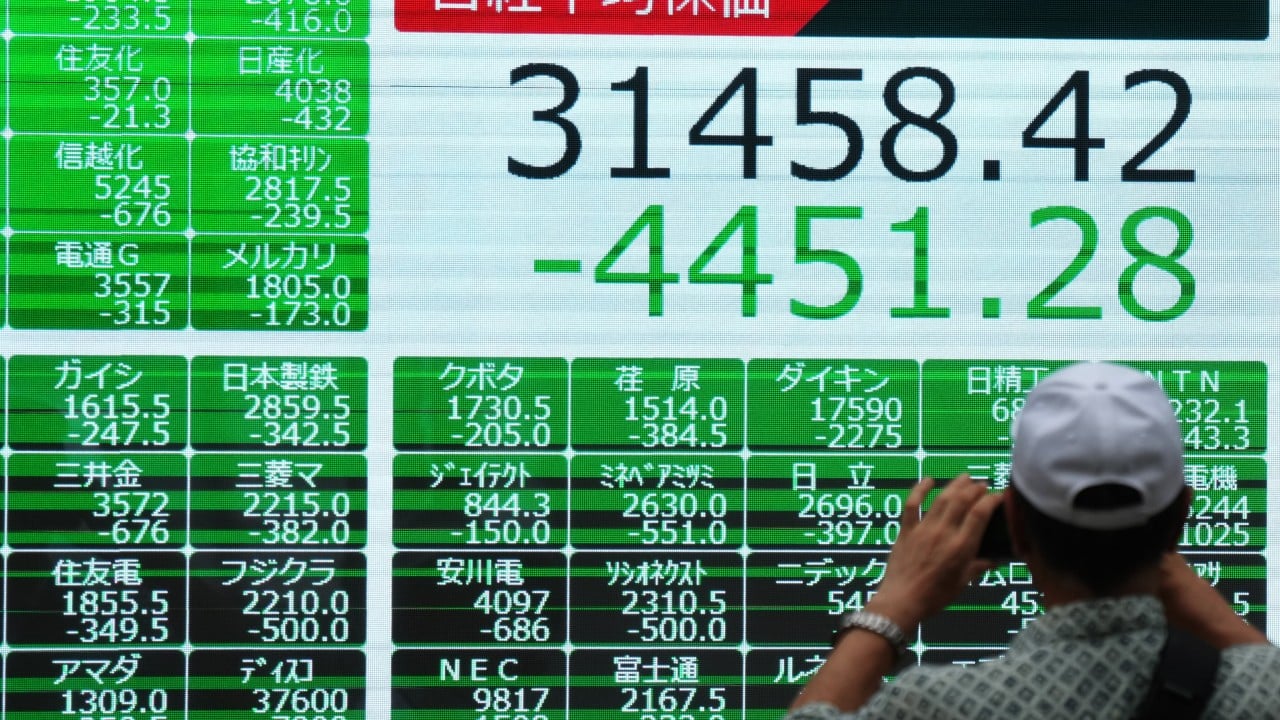Stock market sell-off raises concerns for China’s exports amid US recession fears


Warning signs are flickering for China’s economy – of which the export sector has been a major growth engine in the first half of the year – after concerns about a recession in the United States triggered a massive global stock market sell-off at the start of this week.
While some of the worst-hit markets regained ground on Tuesday, with the key index in Japan rebounding over 10 per cent, it is viewed as too early to reach a conclusion on whether the turmoil has passed, or if it is a real prelude to a recession, said analysts.
“For now, we still regard it as a market fluctuation,” said Ding Shuang, chief economist for Greater China at Standard Chartered Bank.
“But if it really signals a US recession, it means the global economy would also be dragged down, so China’s external demand would slow down.”
Economists at Goldman Sachs on Sunday raised the probability of a US recession in 2025 from 15 per cent to 25 per cent.
It’s likely that Chinese export shipments will slow over the coming months
And while China’s domestic demand has yet to show clear signs of a rebound, Beijing is likely to unveil more stimulus – in the real estate sector or through more active fiscal spending – to maintain growth if the export sector suffers, added Ding.
Nick Marro, principal economist for Asia at the Economist Intelligence Unit, said the US economy remains relatively resilient despite weakening job growth and consumption, while China’s exports this year still have a relatively benign outlook.
“Much of the recent upswing in Chinese trade growth has been tied to inventory restocking, rather than headline growth statistics,” Marro said, adding that the direct relationship between US headline growth and Asian trade performance has been “a bit wonky” since the coronavirus pandemic.
“It’s likely that Chinese export shipments will slow over the coming months.
Marro added that bigger policy-related risks are looming in 2025, given the high likelihood that Donald Trump could return as US president.
The Republican candidate has threatened to remove China’s permanent normal trade relations with the US, and also impose a blanket tariff across all US imports.
But she added the direct impact of a potential recession in the US on China’s trade might not be as big as it used to be.
“The US is by now no longer the largest export market for China. Europe is much bigger now because of years of protectionism from the US side,” she said.
Source link



